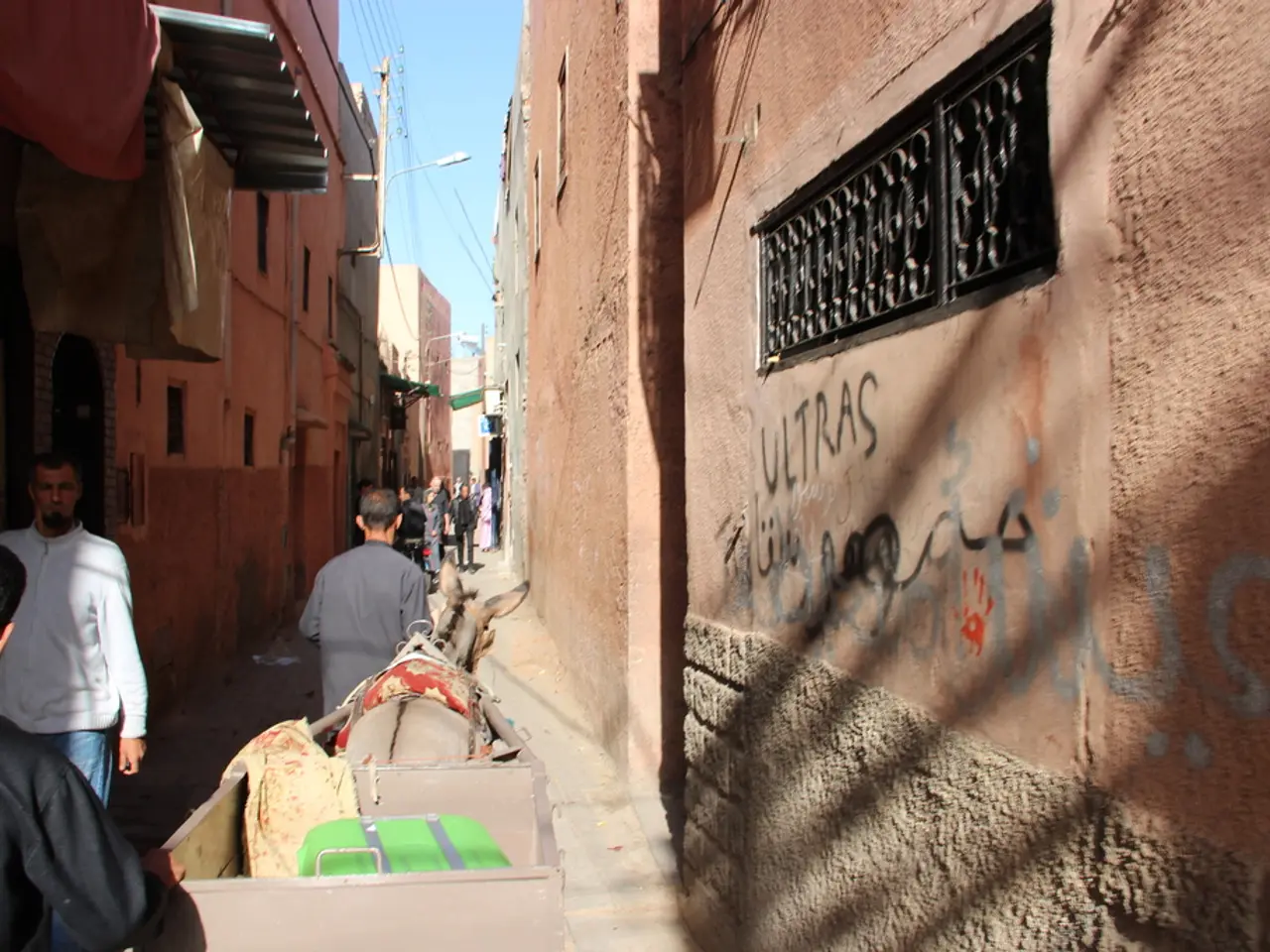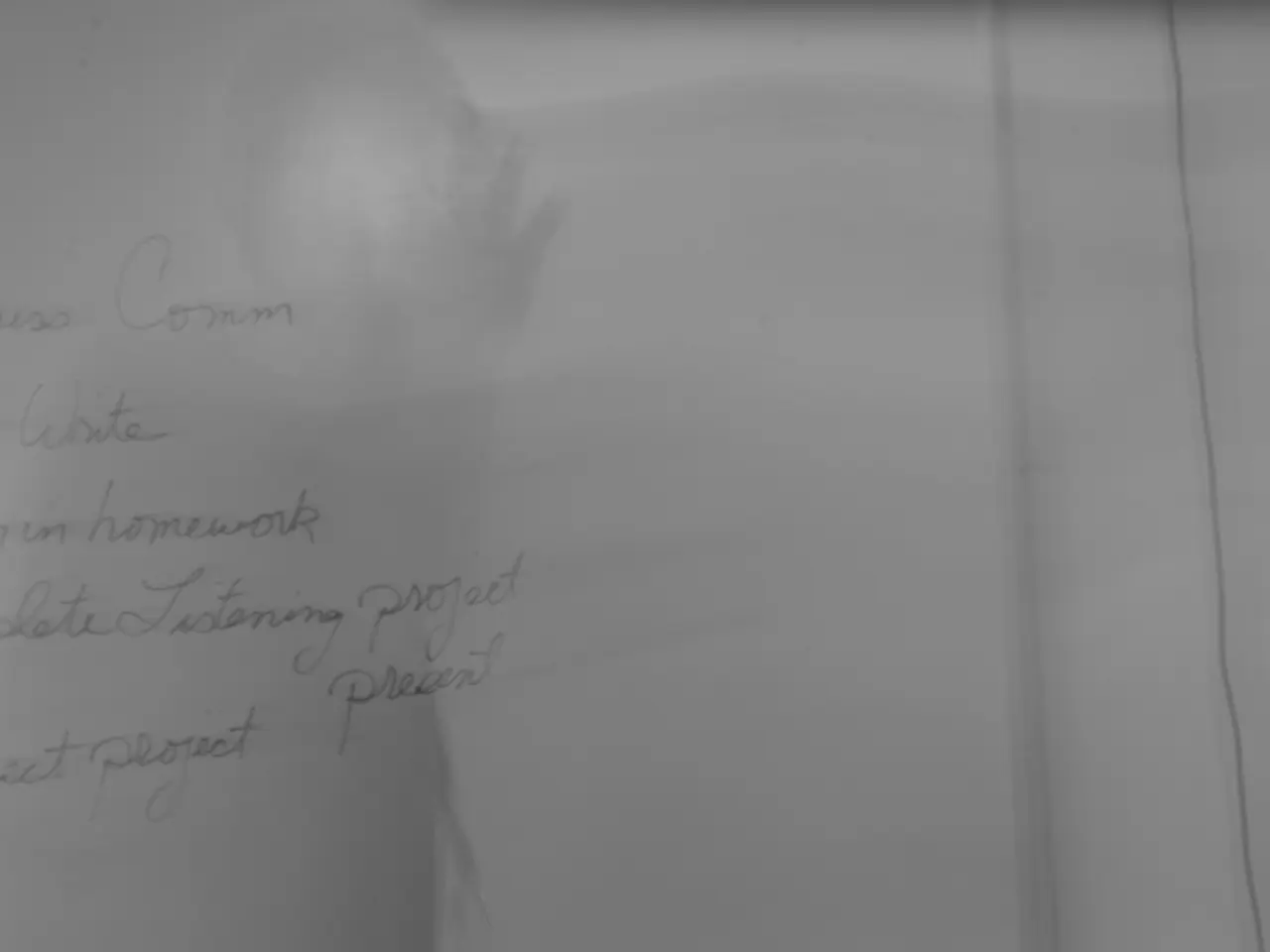Escalation in Gaza Widens Israel's Fractures
Israeli society is grappling with a deepening polarisation over the ceasefire with Hamas and the release of captives abducted during the October 2023 attacks. This division, reflected in the ongoing conflict, is marked by contrasting political motives and security concerns.
One of the major divisions is between those, including Prime Minister Benjamin Netanyahu and his government, who oppose an early ceasefire or partial release of hostages without complete military and political objectives being achieved. Netanyahu has emphasised that Israel will not halt military operations until Hamas is "completely destroyed" and rejected ceasefire terms seen as "conditions of surrender."
On the other hand, there is international pressure and some domestic urgency for a ceasefire that includes phased hostage releases and humanitarian relief. Ceasefire proposals, heavily mediated by the U.S., Egypt, and Qatar, envision gradual phases starting with temporary ceasefires and initial hostage releases, with longer-term goals of ending combat, Israeli withdrawals, and reconstruction of Gaza without Hamas political control.
The political motives behind these divisions include right-wing and security-focused Israeli factions, led by Netanyahu, who prioritise unconditional military victory and view any premature ceasefire as empowering Hamas. They seek Hamas’s full defeat and a non-Hamas, non-Palestinian-Authority civil administration in Gaza, framing military action as liberation from terrorism rather than occupation.
International and some Israeli moderate actors advocate for ceasefires to alleviate humanitarian crises and stabilise the region, pushing for phased agreements involving hostage exchanges and humanitarian aid as confidence-building measures.
Palestinian and regional perspectives vary, with the Palestinian Authority and many international actors emphasising ending Hamas’s weaponry and governance in Gaza with a Palestinian Authority-led administration. They view Israeli military advances as threatening Palestinians’ survival and rights.
The debate over the ceasefire and land annexation is causing division within Israel, straining relationships, and undermining national unity. Dvir Berko, an IT startup worker, criticised the peace activists' call for a ceasefire, arguing that international bodies are exaggerating the threat of starvation in Gaza and that Israel should withhold aid until the remaining 49 hostages are freed.
Independent journalist Meron Rapoport noted that Israel had been divided before the latest conflict, but the conflict and subsequent international criticism have caused attitudes on the right and left to diverge and harden, with many concluding that the central motivations are not military reasons but political ones.
Many families of the Israeli hostages accuse Prime Minister Netanyahu of prolonging the war artificially for political reasons. Only a quarter of Israeli Jews are distressed about the humanitarian situation in Gaza, where a famine is unfolding and civilians are often killed while seeking food. According to a recent survey, a majority of Israelis blame Hamas for the delay in reaching a deal on freeing hostages.
Peace activists, such as Biblical archaeologist Avi Ofer, Avi Ofer, and Mika Almog, have expressed concerns about the ongoing conflict, with Ofer describing it as the most awful period in his life. Emanuel Yitzchak Levi, a peace activist from Israel's religious left, expressed difficulty maintaining relationships with those supporting the conflict.
In response to the ongoing conflict, peace activists like Avi Ofer and others have worn yellow ribbons with the length of the war written on them to protest against the ongoing conflict. Mika Almog stated that the ongoing war is a "false criminal war" that is causing unnecessary loss of life.
References:
[1] Associated Press. (2023, October 25). Former diplomats, military officers, and spy chiefs urge Trump to pressure Netanyahu for a hostage deal. The New York Times. https://www.nytimes.com/2023/10/25/world/middleeast/israel-palestine-trump-netanyahu-hostages.html
[2] The Washington Post. (2023, October 27). U.S., Egypt, and Qatar mediate ceasefire proposals for Israel and Hamas. https://www.washingtonpost.com/world/middle_east/us-egypt-qatar-mediate-ceasefire-proposals-for-israel-and-hamas/2023/10/27/3974f98e-a284-11ed-897c-f6a3048e339e_story.html
[3] The Guardian. (2023, October 28). Palestinian Authority accuses Israel of threatening Palestinians’ survival and rights. https://www.theguardian.com/world/2023/10/28/palestinian-authority-accuses-israel-of-threatening-palestinians-survival-and-rights
[4] Haaretz. (2023, October 29). Netanyahu: Israel will not halt military operations until Hamas is "completely destroyed." https://www.haaretz.com/israel-news/.premium-netanyahu-israel-will-not-halt-military-operations-until-hamas-is-completely-destroyed-1.9480305
[5] Reuters. (2023, November 1). International Court of Justice considers ruling on complaint that Israel has breached the Genocide Convention. https://www.reuters.com/world/middle-east/international-court-justice-considers-ruling-complaint-that-israel-has-breached-2023-11-01/
- The United States, Egypt, and Qatar are mediating ceasefire proposals for Israel and Hamas in the October 2023 conflict, with phased agreements envisioned for temporary ceasefires, initial hostage releases, and long-term goals of ending combat, Israeli withdrawals, and reconstruction of Gaza without Hamas political control.
- While Prime Minister Benjamin Netanyahu opposes an early ceasefire or partial hostage release without complete military and political objectives, there is international pressure for a ceasefire to alleviate humanitarian crises and stabilize the region, pushing for phased agreements involving hostage exchanges and humanitarian aid as confidence-building measures.
- Some Israeli moderates, such as peace activists Avi Ofer and Mika Almog, criticize the ongoing conflict as a "false criminal war" that is causing unnecessary loss of life, expressing concerns about Israel's political reasons for prolonging the war and the impact on national unity.
- In the general news, the International Court of Justice is considering a ruling on a complaint that Israel has breached the Genocide Convention during the war-and-conflicts in Gaza.




